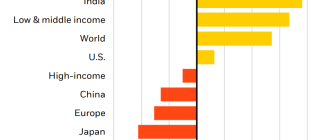Some researchers in China are dissatisfied with the appointed name of the novel coronavirus SARS-CoV-2. They fear that the use of “SARS-CoV” will confuse the public and impede efforts to control the spread of pathogens.
As and the map of the spread of coronavirus it is time to think about the next epidemic
On 11 February the international Committee on taxonomy of viruses announced the name, which was selected on the basis of the analysis of the evolutionary history of the novel coronavirus and the pathogen that causes severe acute respiratory syndrome (SARS), which is called SARS-CoV. Rules for classification and established the practice of naming also informed about the decision.
Although these two viruses are one and the same as SARS-CoV-2 is spreading faster than SARS-CoV, but less dangerous, says Dr. Shibo Jiang, a virologist from the University of Fudan in Shanghai. In the summer of SARS-CoV retreated, but no one knows what will make a new virus in the coming months, he says. People may think that it will behave the same way, and cease to take precautions in the summer.
Scientists are also concerned about the potential social and economic consequences for China of a repetition of the bad memories associated with atypical pneumonia. “This name can cause panic in people and cause severe economic losses in the affected countries when the virus is circulating,” says Guo Deyin, a virologist from sun Yat-sen University in Guangzhou.





